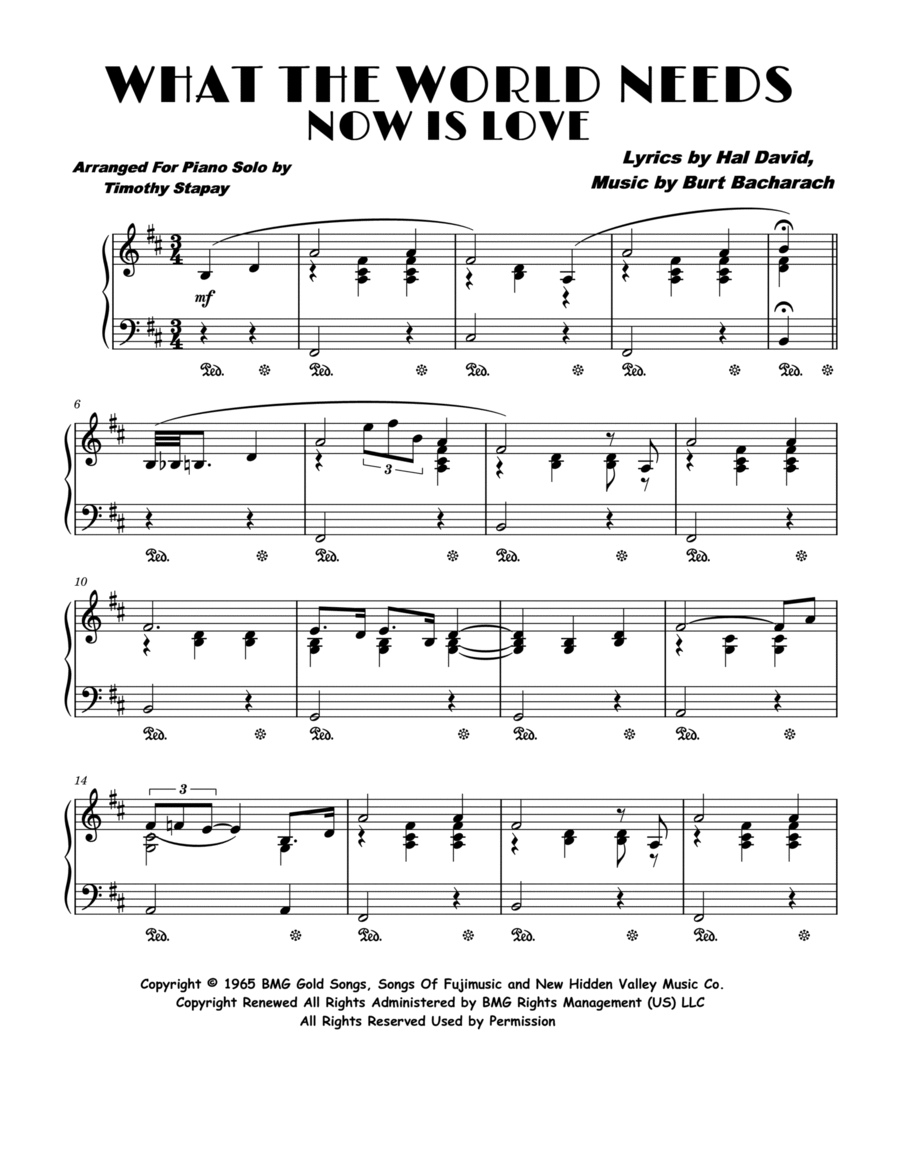Piano Solo - Level 3 - Digital Download SKU: A0.1249719 By Jackie DeShannon. By Burt Bacharach and Hal David. Arranged by Timothy Stapay. Broadway,Film/TV,Musical/Show,Pop,Singer/Songwriter,Standards. Score. 4 pages. Timothy Stapay #844110. Published by Timothy Stapay (A0.1249719). What The World Needs Now Is Love is written in a relaxed waltz style.What the World Needs Now Is Love is a 1965 popular song with lyrics by Hal David and music composed by Burt Bacharach. First recorded and made popular by Jackie DeShannon, it was released on April 15, 1965, on the Imperial label after a release on sister label Liberty records the previous month was canceled. It peaked at number seven on the US Hot 100 in July of that year. In Canada, the song reached number one. The song's success caught the two songwriters completely by surprise, since they were very aware of the controversy and disagreements among Americans about the Vietnam War, which was the subtext for David's lyrics. Bacharach has continuously used the song as the intro and finale for most of his live concert appearances well into the 2000s. Lyrics:What the world needs now is love, sweet loveIt's the only thing that there's just too little ofWhat the world needs now is love, sweet love,No not just for some but for everyone.Lord, we don't need another mountain,There are mountains and hillsides enough to climbThere are oceans and rivers enough to cross,Enough to last till the end of time.What the world needs now is love, sweet loveIt's the only thing that there's just too little ofWhat the world needs now is love, sweet love,No, not just for some but for everyone.Lord, we don't need another meadowThere are cornfields and wheat fields enough to growThere are sunbeams and moonbeams enough to shineOh listen, lord, if you want to know.What the world needs now is love, sweet loveIt's the only thing that there's just too little ofWhat the world needs now is love, sweet love,No, not just for some but for everyone.No, not just for some, oh, but just for everyone.
